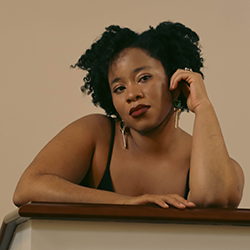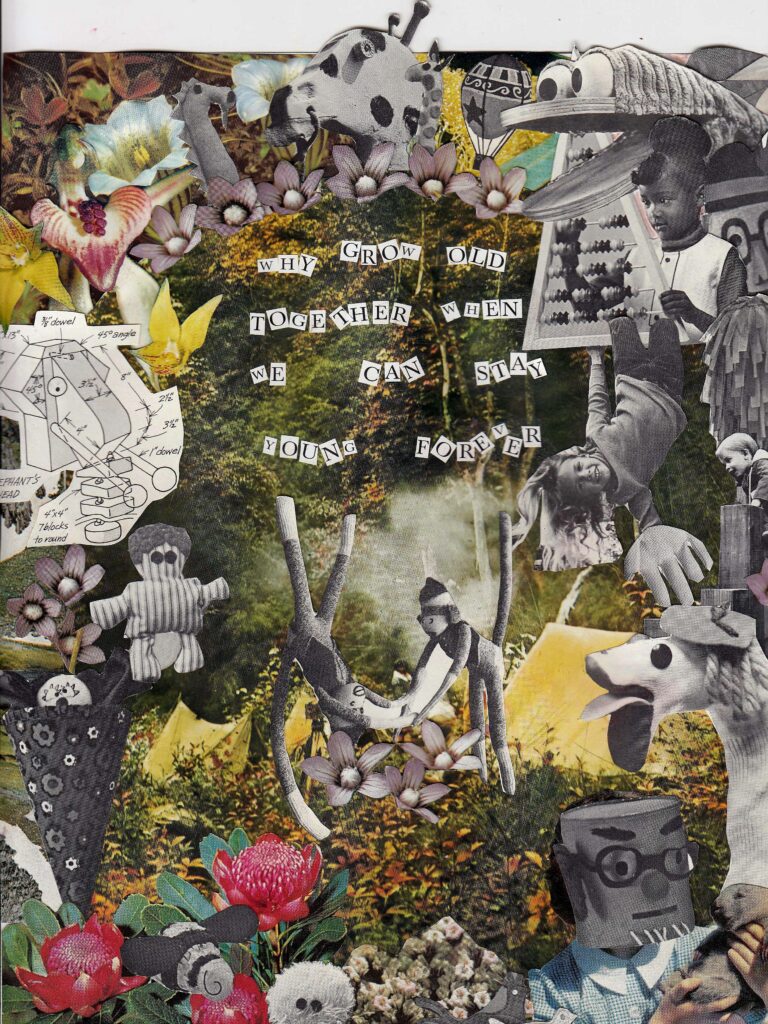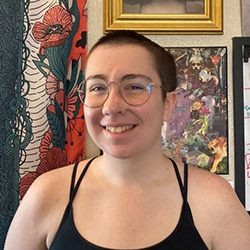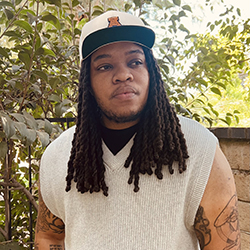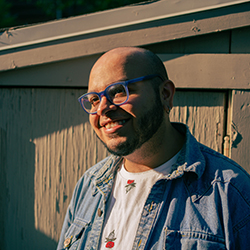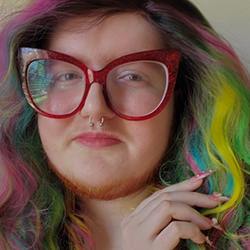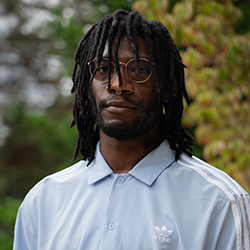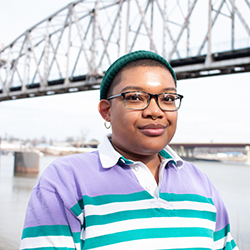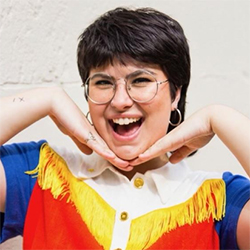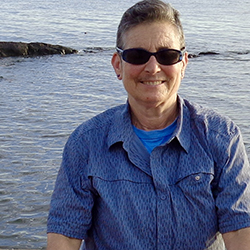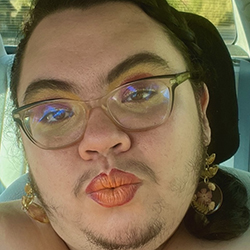I think there’s a ghost in my spirits.
My whisky, my wine, my gin, my scotch.
There is a ghost in my spirits and I think I drank part of its finger the other night when I poured myself a glass of Merlot and sat on my couch and stared at my ceiling from 11:37pm to 1:11am. I don’t really know if ghosts can have fingers. I don’t even know if ghosts are in the shape of human beings or if they’re shapeless masses or if they’re even real. I didn’t believe in ghosts until now. If I even believe in them. But I think I do because the ghost in my spirits was inhabiting the bottle of Merlot I poured myself a glass from, and I think it’s finger was poured into my glass because as I sipped and stared I felt a tickle in my throat that I’d never felt before.
There’s the tickle in your throat that arises when you have to cough. That’s a simple feeling and one that’s easily identifiable.
There’s the tickle in your throat that arises when you’re about to let out a sob. That’s a gruesome feeling and one you try to swallow down.
There’s the tickle in your throat that arises when you are at a loss for words. That’s a breathless feeling and one more complex than coughing.
Then there’s this tickle. The tickle of swallowing a ghost’s finger. It’s a mix of all three of the previously mentioned tickles with a dash of burning. It also sticks. Coughing and sobbing and breathlessness can eventually be expelled from your body. This tickle, however, would not leave. It felt like an insect had lodged in my larynx and was not obstructing my breathing, but was wriggling with a vengeance. I tried to ignore it as I finished the glass, but I couldn’t shake it until the next afternoon.
Tonight I’m drinking a gin and tonic and watching a television show where a girl wants to find a guy but she has a secret and I wish I could tell you more but honestly I just put this on to have some background noise. This gin and tonic is fine but I think now I’ve gotten the ghost’s ear. I feel like I’m hearing more than usual within my house. Not just the random show but also the house settling and the carpet fibers on the rug being rustled in a high definition way. I hear a spider that has just caught my eye walking across my coffee table. Each of its legs are tap tap tap tap tap tap tap tapping across the wood. Normally any sight of a spider is enough to launch me towards the closest tissue or towel so I can squash the fucker, but I can’t help but stare at it and listen to it’s legs tap tap tap tap tap tap tap tap tap tap.
I wonder if this ghost cares that I have accidentally consumed part of its being. I don’t know if I would care if I was a ghost and someone was consuming me. Then again, it’s the ghost’s fault for deciding to camp out in my spirits. It is free to roam around the house if it really wants to.
I think my phone just buzzed.
I’m checking it and it looks like I have a couple of messages. Nothing special, just a text from my mom telling me she has some sprouts growing in her vegetable garden and a picture from Hannah of her kitten playing with yarn. Hannah has never had a maternal instinct, but all of a sudden this kitten has turned her into the most protective parent I’ve ever met. The kitten wandered out the other day somehow and decided to take a nap on the front steps of her house in the sun, and when Hannah discovered the cat wasn’t in the house she called me hysterically sobbing and continued to sob for an hour until her boyfriend came home with the kitten under arm and asked how it had gotten out of the house.
I think the gin is finally fogging my vision and clouding my mind. I feel myself mentally wandering. I feel my ears becoming more and more overwhelmed as I hear far too much for my own good. I think I need to lie down. I should go lie down.
My stairs are rickety and basically broken. The apartment I rent sounds fancy on paper: loft apartment. Loft. What a seductive word. You know what’s not seductive? Stairs that creak even when nobody’s walking on them. A ceiling above my bed that’s sprung numerous leaks. Wallpaper so cracked and torn it’s scratched up your arms on multiple occasions. My apartment is essentially just a series of shambles constructed in a way that resembles shelter. I’ve scraped enough together over the years to pay rent and consume what some may constitute enough food to survive and of course buy liquor. I really don’t need luxury, liabilities can serve a similar purpose.
My mom hates this place. She’s visited twice, and the second time she broke the fourth toe on her left foot on a loose tile in the kitchen floor and proceeded to weep, not because of the pain, but because she didn’t understand why I had moved out into such a shitty place. She kept saying, “I don’t understand, you’d be safer with me. Come back and live with me, Carson” It’s a nice enough sentiment but since May got in that car accident in June I haven’t had a reason to stay there.
Besides, I think mom’s losing it. My name’s not Carson.
I like the way gin makes my face flush. If you can follow this thought, wine makes the apples of your cheeks flush. But gin makes my whole face flush, with a pink strike extending across the bridge of my nose and dabbling my forehead with small specks. It makes me feel like a feather whereas wine makes me feel like a fiend. You’d think it’d be the other way around, but I don’t know. I’m just telling it how I feel it. I like feeling how May felt the night before graduation when she drank half a bottle of Bombay Sapphire and then forgot she’d drank half a bottle of Bombay Sapphire when I’d called crying after I found out dad had discovered I was back home for summer break and had come back just to burn all my clothes and try to threaten mom into letting him come back. She must have felt so fuzzy and light as her front bumper wrapped around that tree.
I’m crawling into bed and I hear the dust molecules whirring around the floor. I kind of feel sorry for the ghost, and wonder if it’s both annoyed that I drank its ear and grateful I’ve relieved it of half of it’s loud existence. I would hate to be both dead and stuck with perpetual HD hearing.
I wonder why a ghost would take up company with me. Sure, this house is creepy and run-down but other than that it’s not exactly a fun apartment to haunt. It’s not May, either, don’t be basic. I would know if it was May. May would leave little signs or something. She used to leave me little presents in my room when I’d had a bad day. I would never tell her, she would just guess. And she was always right. I had a lot of shitty days as a kid. And a teenager. And as a twenty-something. My existence is shitty? Maybe that’s why there’s a ghost lurking in my household, hiding in my spirits. Why a ghost has any interest in alcohol is beyond me. Can a ghost get drunk? Maybe. Maybe it’s just nice to be in a confined little space. Less nice when someone drinks part of you, but, you should figure it comes with the territory.
May hated confined spaces. That’s another reason I know this isn’t her. She loved open fields and gloated over having the biggest room which she knew she only got because she was the baby.
May bought me the first piece of clothing that I actually liked. My parents always got the cut and color of my clothes wrong. And by parents I mean mom. Dad was kicked out when May was a senior in high school and I was a freshman in college. Not that that stopped him from coming to the house and burning the clothes May got me. Still, he was kicked out. He wasn’t supposed to be there.
There’s this weird rustling under my bed. Not the dust, that’s a different rustling. That rustling is like a shhhhshshshshshshhh.
This is more like a crchshcruchs.
What is that.
Wait.
What is that?
There’s a child under my bed now. There are ghosts in my spirits and now there’s a child under my bed. I see a small fists curled up and tiny beady eyes peeking out back from the darkness and peering into mine.
“Hey.”
The child is still staring at me. A curl falls into its eyes. I think I recognize that curl, but I don’t know why.
“Hey, you don’t have to hide under there if you don’t want.”
I have no experience with the supernatural so if this is some demon and I’m inviting into my home well, then, oops I guess. I just need this rustling to stop, it’s getting loud. There’s also this clicking noise now. I haven’t heard that since my dad would clip his nails in the bathroom and then grab my hands and clip my nails and tell me they were unkempt and no one likes someone with unkempt nails. I think this child is making that noise. I notice one hand is retracted and after every click there is now the sound of a soft spit and from that spit a nail appears.
“You shouldn’t bite your nails. No one is going to make you clip them if you want to let them grow.”
The child stops. The child inches forward.
“Can I get you a snack?”
No movement.
“Do you want water?”
Nothing.
“Want to see a cool rock?”
That’s fucking silly I know that’s fucking silly but that gets the child to come out. I’ve had this rock that May picked up from the beach one summer and gave to me because it had tiny little glittery bits. I’ve brought that rock with me everywhere I’ve ever lived. The child walks towards it slowly, but looks impressed with the glitter when I pick up the rock and move it around.
“Wanna hold it?”
It nods. I hold it out, and the child takes it.
I notice there is a finger missing from a finger.
I stare. And stare. And stare. And then look closer. And closer. And closer. And then, finally, I recognize the hair and eyes and freckles on the bridge of the nose and the overalls I loved so much when he was six because it was the only clothing item I owned that didn’t make me feel weird.
“Oh.”
I brush the child’s hair back and notice it’s ear is gone.
“What were you doing hiding in the wine and gin?”
The child shrugs. “You weren’t looking anywhere else.”
“It’s been hard to focus on anything else.”
“I didn’t like it there.”
I laugh. Of course he didn’t.
“I’m sorry I drank your finger and ear.”
“It’s okay. I won’t need them much longer.”
“Oh?”
The child sits down criss-cross. It tosses the rock back and forth between it’s palms.
“Why do you keep remembering me?”
Jesus. What kind of question is that. “Um…because sometimes I wonder what would happen if you had never been born. And sometimes I wonder what would have happened if you had never changed. And I wonder if you ever could have done something to save May.”
I was wearing a dress the night May died. The first dress I had ever received. And that night my father showed up because he heard I was back home and that was the first time I’d been back home since I told him I wasn’t his son anymore and that if he couldn’t accept me as his daughter he couldn’t be part of my life and he spit at me and called me names that blurred together and I left before he was finished because I wasn’t going to take that. Mom said that I didn’t have to take it. May said I didn’t have to take it.
Maybe I should have taken it.
I didn’t realize I had been speaking this out loud.
I feel a hand on my leg.
“It’s okay.”
“Could I have stopped it?”
“You?”
“…We? Could we have stopped it?”
“No. But I don’t think we were supposed to.”
I feel a tickle in my throat and the moon streaming into my room makes a searing sound as it hits my bedspread. I don’t know what’s going on anymore. I’ve been in this shitty apartment for too long. “Is this actually happening?”
“I think so.”
“You do?”
“Don’t you?”
“No, I hope it’s not.”
“Then we probably think it is.”
We.
We.
I’m looking at myself before I came to May heartfelt one night and told her I thought I was someone else but I didn’t have the language to articulate so instead she just let me cry on her shoulder and bought me a dress and after that we didn’t have to speak about it because we knew and my mother had silently always known so my hair and nails grew and I wore more and more dresses until my father came and burned them all and –
“I miss May.”
“Yes.”
“I miss her.”
“I know.”
“You don’t speak like a child.”
“I speak however you think I speak.”
“I think you speak like me.”
“Then I speak like you.”
“I’m sorry I’ve dragged you along for so long.”
The child nods. “It’s okay. But sooner or later I’ll have to leave.”
“When?”
“When can you forget her and forgive him?”
I stare at the fingerless earless former version of myself and stare and stare and hear the moonlight sear and feel my throat constrict and expand and stare and stare and don’t know.
“What are you thinking about?”
“How you shouldn’t hide in my liquor cabinet”
“Okay. I won’t anymore.”
“Okay.”
“I like your dress, by the way, Connie. I like that we’re wearing those now.”
“Thank you.”
The next morning I wake up, hungover and looking ghostly. I don’t think I’m going to drink tonight. Just in case the ghost ends up in my spirits again by accident.
Lizz Mangan (they/them) is a playwright, dramaturg, and educator who focuses on queering theater in subject and structure. Lizz’s work has been produced by companies such as The Tank, Gadfly Theatre, American Stage Theatre Company, and more across the country. Lizz’s Play Strike/Out will be published by 1319 press in 2025. When not writing, Lizz can be found bowling or falling into various internet rabbit holes. lizzmangan.com.
